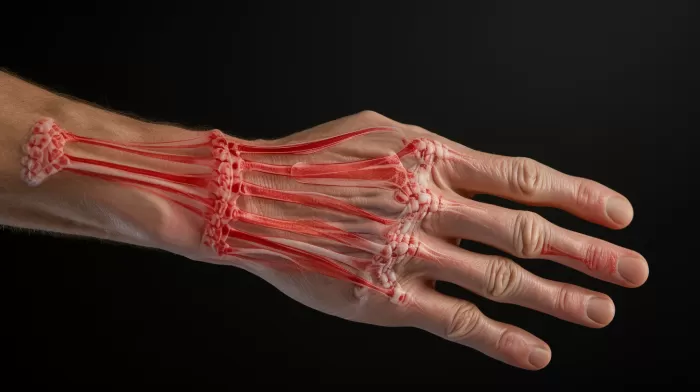If you’re among the millions of people who suffer from joint pain or arthritis, it’s time to dig deeper and uncover the real reason behind your discomfort. It’s not a disease but, rather, it’s a symptom or sign of another underlying issue. Arthritis is an inflammatory process affecting the joints and, indeed, more than 100 diseases involve some form of arthritis. By understanding the real causes of arthritis and the factors that contribute to inflammation in the body, you can take action to alleviate your joint pain and find lasting relief.
Arthritis: A Common Symptom
Arthritis affects one in five US adults and causes disability in one in three of those with arthritis, that’s more than 21 million people. Interestingly, arthritis is a very prevalent comorbidity with other chronic illnesses:
- 57 percent of adults with heart disease have arthritis
- 52 percent of adults with diabetes have arthritis
- 44 percent of adults with high blood pressure have arthritis
- 36 percent of adults with obesity have arthritis
- 47 percent of adults with arthritis have at least one other major disease
Previously, it was thought that arthritis was simply the result of joints wearing down as a person aged. However, we now know that this is not the only cause, and in fact, it’s crucial to consider broader factors when trying to understand arthritis and find treatment options.
The Main Causes of Arthritis
There are several known causes of arthritis, including:
- A previous injury to a single joint or the spinal joints
- Infectious agents such as viruses, bacteria, mycoplasma, and fungi
- Immune hypersensitivity, which is an overreaction of the immune system in response to environmental chemicals that are foreign to the human body, smoking tobacco, unhealthy emotions and thoughts, and unhealthy foods.
In the case of unhealthy foods, the inflammatory process often begins in the digestive tract. Over time, the lining of the intestines can become inflamed or damaged due to the consumption of foods high in sugar or low in fiber. Both sugar and fiber are critical in maintaining a healthy gut, so a diet heavy in processed foods can lead to gut imbalances. Other contributors to an unhealthy or “leaky” gut include:
- Antibiotics, which cause an overgrowth of resistant bacteria, yeast, and parasites.
- Alcohol and caffeine, which are strong gut irritants that wear down the mucosa.
- Chemical food dyes and preservatives, which may affect the body in various ways.
- A deficiency in digestive enzymes and low stomach acid, which means the stomach is not functioning correctly.
The process of an unhealthy gut starts when the worn and weakened intestinal lining cells become damaged, allowing foreign molecules to enter the bloodstream and stimulate allergic responses. This inflammation results in immune hypersensitivity, also known as leaky gut syndrome, and can lead to autoimmune diseases improving with optimal nutrition and bowel health over several months.
Treating Arthritis
Now that we’ve established a better understanding of the real causes of arthritis and the role inflammation plays in joint pain, it’s time to explore medical and natural treatments for lasting relief. Fortunately, there are many options available for those looking to alleviate their arthritis symptoms:
- Medications: Over-the-counter pain relievers such as acetaminophen, ibuprofen, and naproxen can help alleviate pain and inflammation. Prescription medications are also available for more severe cases, including oral and injectable corticosteroids, disease-modifying antirheumatic drugs (DMARDs), and biologic response modifiers.
- Physical Therapy: Physical therapy can help improve joint mobility, flexibility, and strength while also reducing inflammation. A physical therapist can also help teach proper posture and movement techniques to minimize stress on the joints.
- Weight Loss: Maintaining a healthy weight can reduce the strain on joints, decreasing pain and inflammation.
- Exercise: Regular exercise is crucial for maintaining healthy joints and reducing overall inflammation. Include low-impact activities like swimming, cycling, or walking to protect your joints without causing harm.
- Dietary Changes: A diet rich in fruits, vegetables, whole grains, lean proteins, and healthy fats (such as omega-3 fatty acids) can help reduce inflammation in the body. Limiting sugar, processed foods, and alcohol could also prevent inflammation and boost overall health.
- Stress Management: Since stress and emotions can play a role in inflammation, practicing relaxation techniques such as meditation, deep breathing exercises, and yoga could help alleviate arthritis symptoms.
By addressing the root causes of arthritis and inflammation, it’s possible to find lasting relief from joint pain and significantly improve your overall quality of life. Don’t settle for conventional wisdom; take the time to explore the real reasons behind your arthritis and commit to making the necessary changes for a healthier, pain-free future.



